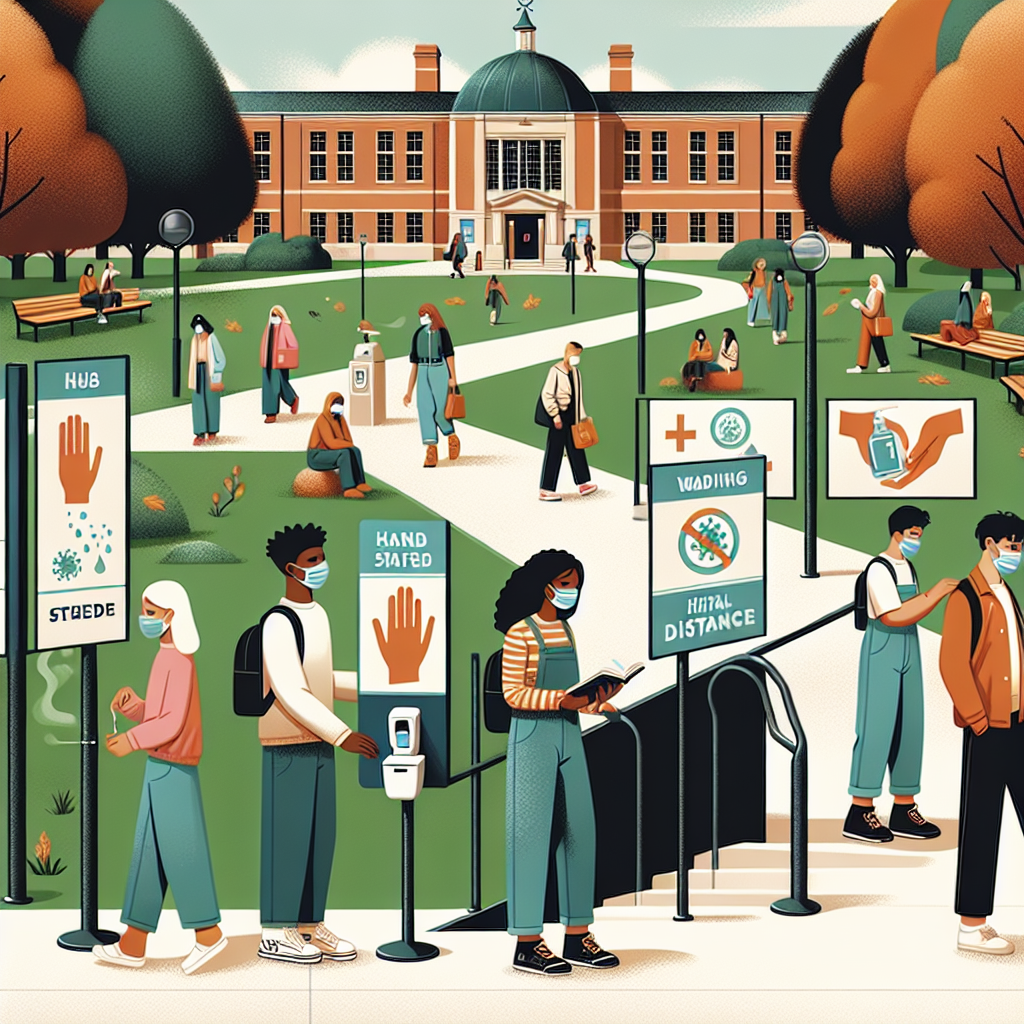
Essential Cold and Flu Safety Tips for a Healthy Campus
Cold and flu season can hit college campuses hard, as students live, study, and socialize in close quarters. When one person catches a virus, it can easily spread throughout dorms, classrooms, and common areas. Protecting yourself and others is key to maintaining a healthy campus environment.
In this guide, we’ll explore essential cold and flu safety tips to help you stay healthy, prevent sickness, and minimize the spread of germs.
Understanding Cold and Flu: What You Need to Know
Before diving into prevention and treatment, it’s important to understand the differences between the common cold and flu:
- Common Cold: Caused by various viruses, a cold leads to mild symptoms like a runny nose, cough, and sore throat. It usually lasts for about a week.
- Influenza (Flu): A more severe viral infection with symptoms such as fever, body aches, extreme fatigue, and respiratory issues. The flu can lead to complications, so prevention is crucial.
How to Prevent Cold and Flu on Campus
1. Practice Good Hygiene
Hygiene is your first line of defense against cold and flu viruses. Follow these hygiene tips daily:
- Wash your hands often with soap and water for at least 20 seconds.
- Use hand sanitizer with at least 60% alcohol when soap isn’t available.
- Avoid touching your face, as viruses enter through your eyes, nose, and mouth.
- Cover your mouth and nose when coughing or sneezing—use a tissue or your elbow.
- Clean and disinfect common surfaces like doorknobs, desks, and shared spaces.
2. Get Vaccinated
The flu vaccine is one of the most effective ways to prevent flu outbreaks on campus.
- Get an annual flu shot to protect yourself from the most common strains.
- Encourage others in your dorm, classmates, and professors to get vaccinated.
- Many campuses offer free or low-cost flu shots—take advantage of this!
3. Boost Your Immune System
Strengthening your immune system can help your body fight off infections more effectively.
- Eat a nutritious diet rich in fruits, vegetables, and vitamins.
- Stay hydrated by drinking plenty of water and limiting sugary drinks.
- Get enough sleep (7-9 hours per night) to allow your body to recover and fight illness.
- Exercise regularly to improve circulation and boost immunity.
- Manage stress with activities like meditation, yoga, or campus wellness programs.
4. Avoid Close Contact with Sick Individuals
If someone in your dorm or class is sick, take precautions to avoid catching their illness.
- Maintain a safe distance from anyone who is visibly unwell.
- If you’re feeling unwell, stay home and rest to prevent spreading germs.
- Wear a mask if you’re sick and need to be around others.
5. Keep Your Living and Study Areas Clean
Since germs can linger on surfaces, maintaining a clean environment is essential.
- Disinfect regularly by using antibacterial wipes on shared spaces.
- Launder bedding and clothes frequently, especially if you’ve been sick.
- Keep tissues, hand sanitizer, and disinfecting wipes in your dorm or backpack.
What to Do If You Get Sick
Despite your best efforts, you might still catch a cold or flu. If you do, follow these steps for a speedy recovery and to avoid infecting others.
1. Rest and Hydrate
Your body needs time to heal. Stay in bed, drink plenty of fluids, and avoid strenuous activities.
- Drink water, herbal teas, and electrolyte drinks to stay hydrated.
- Avoid caffeine and alcohol, which can dehydrate you.
2. Use Over-the-Counter Medicine
Medications can ease symptoms, but they won’t cure the virus.
- Ibuprofen or acetaminophen can reduce fever and body aches.
- Decongestants and cough suppressants can provide temporary symptom relief.
- Talk to a campus health professional before taking new medications.
3. Avoid Spreading Germs
Help protect your roommates and classmates by minimizing exposure.
- Stay in your room until you’re fever-free for at least 24 hours without medication.
- Use tissues to cover sneezes and coughs, and dispose of them properly.
- Clean your belongings and wash your hands frequently.
4. Seek Medical Attention If Needed
Sometimes, a cold or flu can develop into something more serious like pneumonia or bronchitis.
- Visit your campus health center if symptoms worsen or last more than 10 days.
- Seek emergency care if you experience difficulty breathing, high fever, or prolonged weakness.
Stay Healthy and Protect Your Campus
By taking proactive steps, you can minimize the impact of cold and flu season on campus. Prioritize hygiene, avoid close contact with sick individuals, and most importantly, take care of your health. A few small efforts go a long way in keeping yourself and your peers safe.
Stay well, stay informed, and help create a healthier campus environment for everyone!



